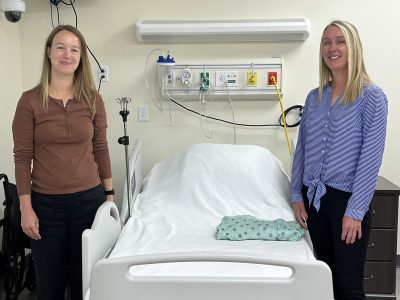Why Is Affectionate Touch Important to Relationships? Psychology Professor Shares His Research
How does affectionate touch benefit relationships? Brett Jakubiak, associate professor of psychology in the College of Arts and Sciences, looks at whether affectionate touch can help people maintain intimacy and offer responsive social support.
Jakubiak focuses on interpersonal support processes that regulate stress, encourage autonomous goal pursuit and enhance relationship quality across the lifespan.
Jakubiak received a CAREER Award from the National Science Foundation in 2022 for “Modeling the Unique Effects of Verbal and Physical Contact on Well-Being,” to study how affectionate physical contact—apart from verbal expressions of affection—impacts individuals psychologically.
For Valentine’s Day, Jakubiak spoke with SU News about his research and offered some tips to foster both individual and relationship well-being.


